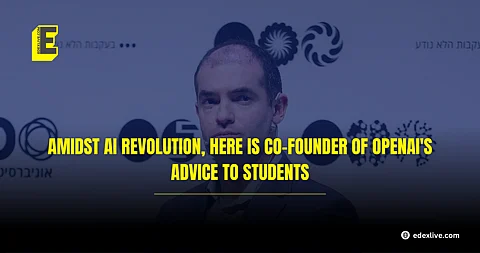

During the convocation address at the University of Toronto on June 6, 2025, Ilya Sutskever, Co-founder and former Chief Scientist of OpenAI, shared an optimistic vision of artificial intelligence’s (AI) future, reported India Today.
He described AI as “unprecedented and extreme,” he predicted that it will eventually surpass human capabilities in all tasks.
Drawing a parallel between the human brain and digital computers, he argued, “The brain is a biological computer, so a digital brain can do the same things.”
However, he estimated that AI could achieve this level of proficiency within the next three to ten years, laying the groundwork for a future of superintelligence. He foresaw rapid advancements leading to faster scientific discovery, economic growth, and widespread automation.
However, he acknowledged the profound question of what roles humans will play when machines can perform all tasks, emphasising that AI’s influence on society is inevitable, stating, “Whether you like it or not, your life is going to be affected by AI to a great extent.”
His advice to graduates
The OpenAI Co-founder offered life advice to the graduating class, urging them to accept reality and focus on actionable steps rather than dwelling on past setbacks.
“It’s so easy to think about bad past decisions or bad luck,” he said, “Things are the way they are, what’s the next best step?”
He further highlighted its impact on education, work, and daily life, noting that it is reshaping what it means to be a student in “unknown and unpredictable ways.”
Rather than delving into technical specifics, he emphasised intuition, asserting that AI could master any skill humans can learn. His message to graduates was clear: AI is set to redefine the future, and they must prepare for its rapid, central role in shaping the world, and accordingly change themselves.
